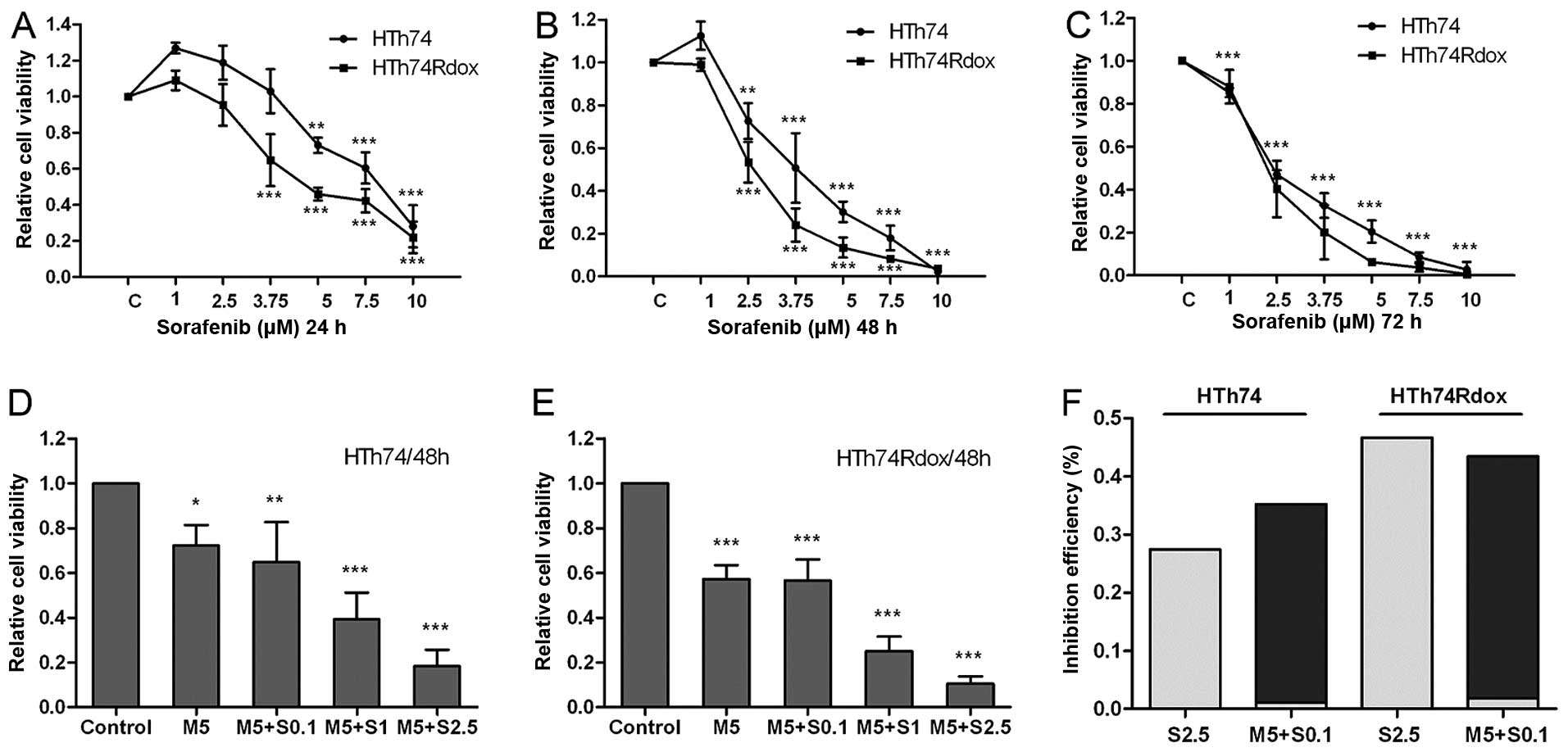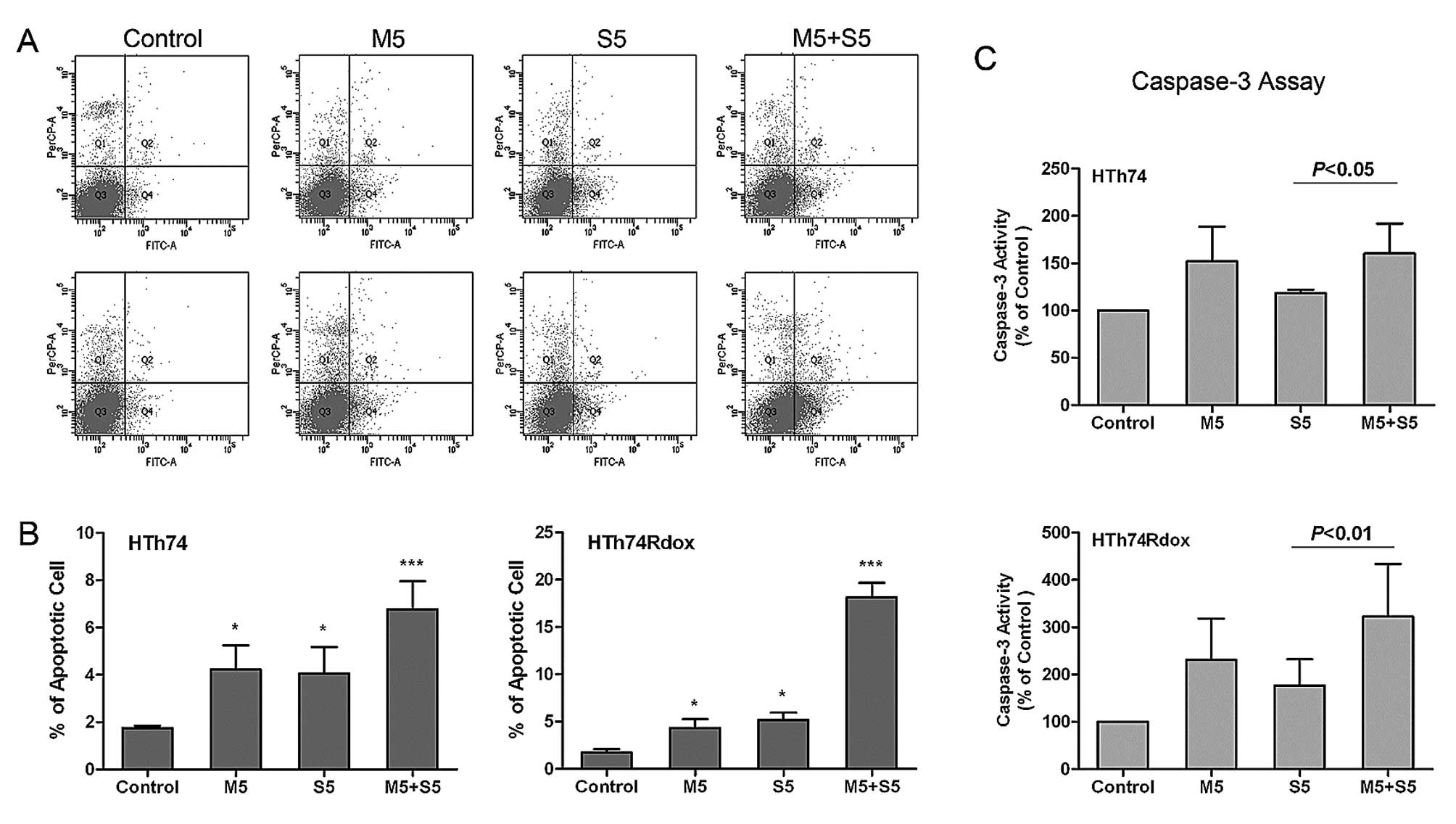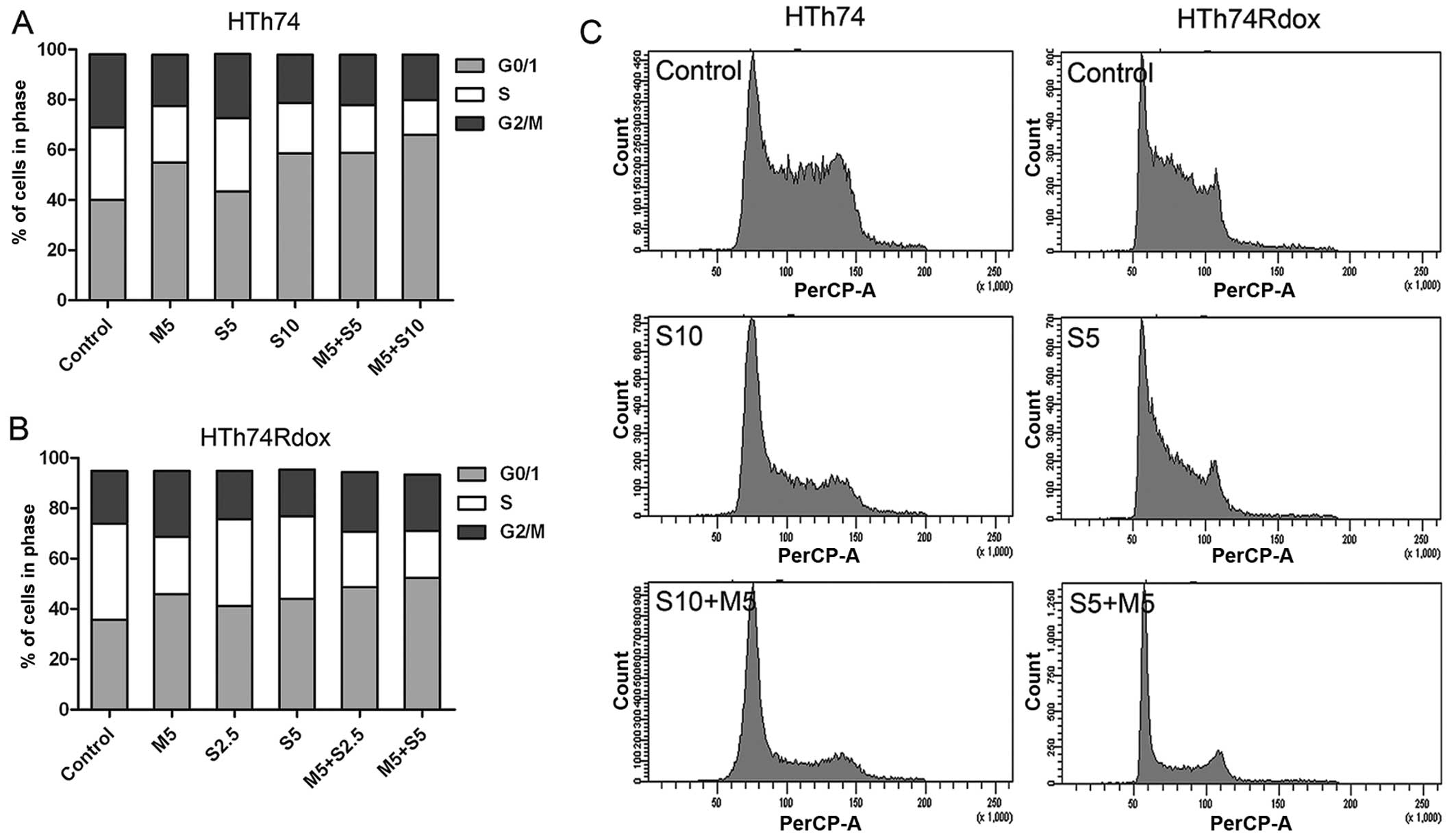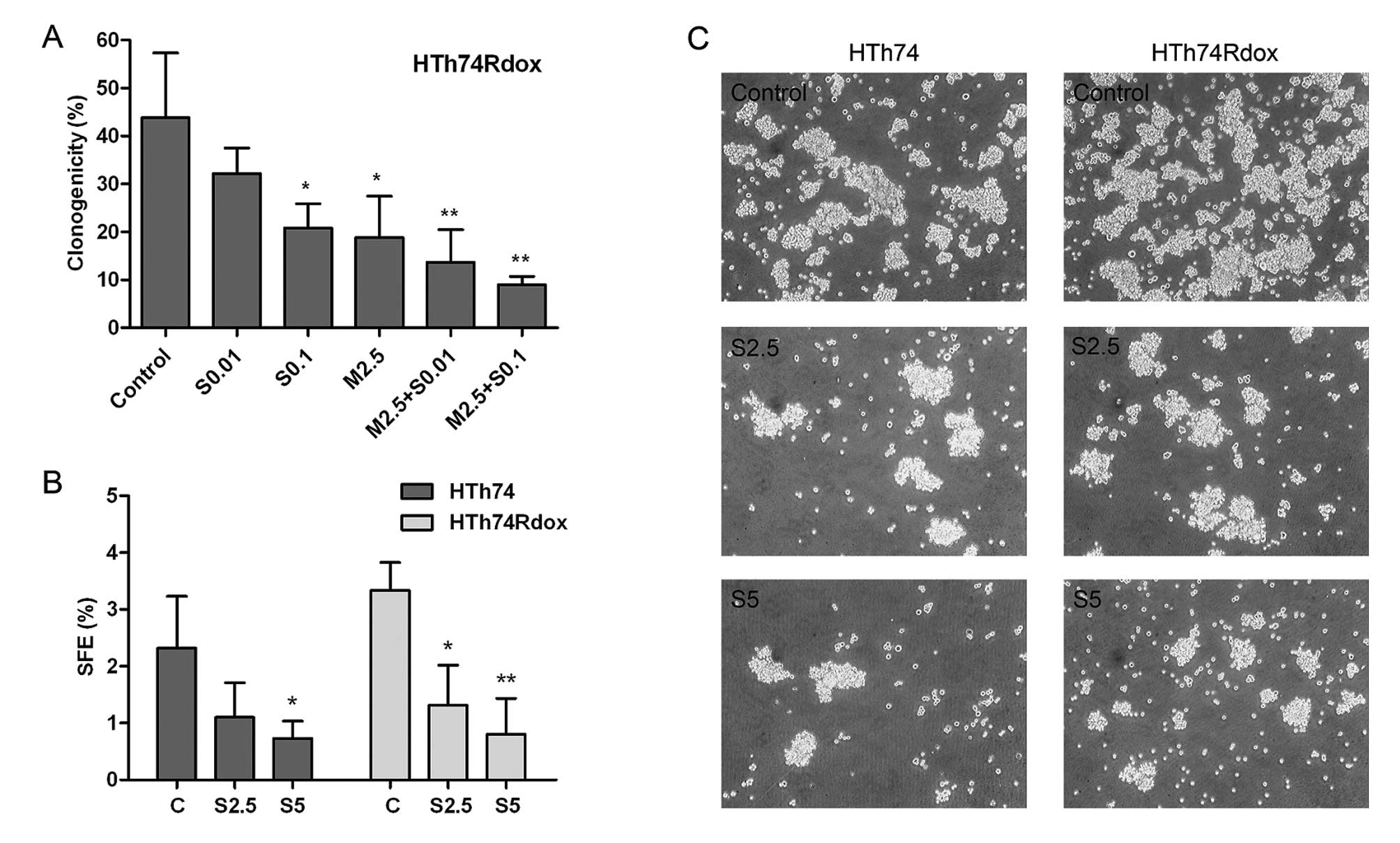|
1
|
Ordonez N, Baloch Z, Matias-Guiu X, et al:
Undifferentiated (anaplastic) carcinoma. World Health Organization
Classification of Tumours of Endocrine Organs. DeLellis RA, Lloyd
RV, Heitz PU and Eng C: IARC Press; Lyons: pp. 77–80. 2004
|
|
2
|
Smallridge RC, Marlow LA and Copland JA:
Anaplastic thyroid cancer: molecular pathogenesis and emerging
therapies. Endocr Relat Cancer. 16:17–44. 2009. View Article : Google Scholar
|
|
3
|
Pasieka JL: Anaplastic thyroid cancer.
Curr Opin Oncol. 15:78–83. 2003. View Article : Google Scholar
|
|
4
|
Granata R, Locati L and Licitra L:
Therapeutic strategies in the management of patients with
metastatic anaplastic thyroid cancer: review of the current
literature. Curr Opin Oncol. 25:224–228. 2013.PubMed/NCBI
|
|
5
|
Wilhelm SM, Adnane L, Newell P, Villanueva
A, Llovet JM and Lynch M: Preclinical overview of sorafenib, a
multikinase inhibitor that targets both Raf and VEGF and PDGF
receptor tyrosine kinase signaling. Mol Cancer Ther. 7:3129–3140.
2008. View Article : Google Scholar : PubMed/NCBI
|
|
6
|
Brose MS, Nutting CM, Jarzab B, et al:
Sorafenib in radioactive iodine-refractory, locally advanced or
metastatic differentiated thyroid cancer: a randomised,
double-blind, phase 3 trial. Lancet. 384:319–328. 2014. View Article : Google Scholar : PubMed/NCBI
|
|
7
|
Gupta-Abramson V, Troxel AB, Nellore A, et
al: Phase II trial of sorafenib in advanced thyroid cancer. J Clin
Oncol. 26:4714–4719. 2008. View Article : Google Scholar : PubMed/NCBI
|
|
8
|
Haugen BR and Kane MA: Approach to the
thyroid cancer patient with extracervical metastases. J Clin
Endocrinol Metab. 95:987–993. 2010. View Article : Google Scholar : PubMed/NCBI
|
|
9
|
Savvides P, Nagaiah G, Lavertu P, et al:
Phase II trial of sorafenib in patients with advanced anaplastic
carcinoma of the thyroid. Thyroid. 23:600–604. 2013. View Article : Google Scholar :
|
|
10
|
Duntas LH and Bernardini R: Sorafenib:
rays of hope in thyroid cancer. Thyroid. 20:1351–1358. 2010.
View Article : Google Scholar : PubMed/NCBI
|
|
11
|
Chen G, Xu S, Renko K and Derwahl M:
Metformin inhibits growth of thyroid carcinoma cells, suppresses
self-renewal of derived cancer stem cells, and potentiates the
effect of chemotherapeutic agents. J Clin Endocrinol Metab.
97:E510–E520. 2012. View Article : Google Scholar : PubMed/NCBI
|
|
12
|
Zheng X, Cui D, Xu S, Brabant G and
Derwahl M: Doxorubicin fails to eradicate cancer stem cells derived
from anaplastic thyroid carcinoma cells: Characterization of
resistant cells. Int J Oncol. 37:307–315. 2010.PubMed/NCBI
|
|
13
|
Broecker M, Hammer J and Derwahl M:
Excessive activation of tyrosine kinases leads to inhibition of
proliferation in a thyroid carcinoma cell line. Life Sci.
63:2373–2386. 1998. View Article : Google Scholar
|
|
14
|
Manole D, Schildknecht B, Gosnell B, Adams
E and Derwahl M: Estrogen promotes growth of human thyroid tumor
cells by different molecular mechanisms. J Clin Endocrinol Metab.
86:1072–1077. 2001.PubMed/NCBI
|
|
15
|
Isakovic A, Harhaji L, Stevanovic D, et
al: Dual antiglioma action of metformin: cell cycle arrest and
mitochondria-dependent apoptosis. Cell Mol Life Sci. 64:1290–1302.
2007. View Article : Google Scholar : PubMed/NCBI
|
|
16
|
Lan L, Cui D, Nowka K and Derwahl M: Stem
cells derived from goiters in adults form spheres in response to
intense growth stimulation and require thyrotropin for
differentiation into thyrocytes. J Clin Endocrinol Metab.
92:3681–3688. 2007. View Article : Google Scholar : PubMed/NCBI
|
|
17
|
Reddi HV, Madde P, McDonough SJ, et al:
Preclinical efficacy of the oncolytic measles virus expressing the
sodium iodide symporter in iodine non-avid anaplastic thyroid
cancer: a novel therapeutic agent allowing noninvasive imaging and
radioiodine therapy. Cancer Gene Ther. 19:659–665. 2012. View Article : Google Scholar : PubMed/NCBI
|
|
18
|
Thomas L, Lai SY, Dong W, et al: Sorafenib
in metastatic thyroid cancer: a systematic review. Oncologist.
19:251–258. 2014. View Article : Google Scholar : PubMed/NCBI
|
|
19
|
Wilhelm SM, Carter C, Tang L, et al: BAY
43-9006 exhibits broad spectrum oral antitumor activity and targets
the RAF/MEK/ERK pathway and receptor tyrosine kinases involved in
tumor progression and angiogenesis. Cancer Res. 64:7099–7109. 2004.
View Article : Google Scholar : PubMed/NCBI
|
|
20
|
Salvatore G, De Falco V, Salerno P, et al:
BRAF is a therapeutic target in aggressive thyroid carcinoma. Clin
Cancer Res. 12:1623–1629. 2006. View Article : Google Scholar : PubMed/NCBI
|
|
21
|
Schneider TC, Abdulrahman RM, Corssmit EP,
Morreau H, Smit JW and Kapiteijn E: Long-term analysis of the
efficacy and tolerability of sorafenib in advanced radioiodine
refractory differentiated thyroid carcinoma: final results of a
phase II trial. Eur J Endocrinol. 167:643–650. 2012. View Article : Google Scholar : PubMed/NCBI
|
|
22
|
Kim S, Yazici YD, Calzada G, et al:
Sorafenib inhibits the angiogenesis and growth of orthotopic
anaplastic thyroid carcinoma xenografts in nude mice. Mol Cancer
Ther. 6:1785–1792. 2007. View Article : Google Scholar : PubMed/NCBI
|
|
23
|
Henderson YC, Ahn SH, Kang Y and Clayman
GL: Sorafenib potently inhibits papillary thyroid carcinomas
harboring RET/PTC1 rearrangement. Clin Cancer Res. 14:4908–4914.
2008. View Article : Google Scholar : PubMed/NCBI
|
|
24
|
Shen CT, Qiu ZL and Luo QY: Sorafenib in
the treatment of radioiodine-refractory differentiated thyroid
cancer: a meta-analysis. Endocr Relat Cancer. 21:253–261. 2014.
View Article : Google Scholar
|
|
25
|
Mitsutake N, Iwao A, Nagai K, et al:
Characterization of side population in thyroid cancer cell lines:
cancer stem-like cells are enriched partly but not exclusively.
Endocrinology. 148:1797–1803. 2007. View Article : Google Scholar : PubMed/NCBI
|
|
26
|
Ling S, Feng T, Ke Q, et al: Metformin
inhibits proliferation and enhances chemosensitivity of
intrahepatic cholangiocarcinoma cell lines. Oncol Rep.
31:2611–2618. 2014.PubMed/NCBI
|



















